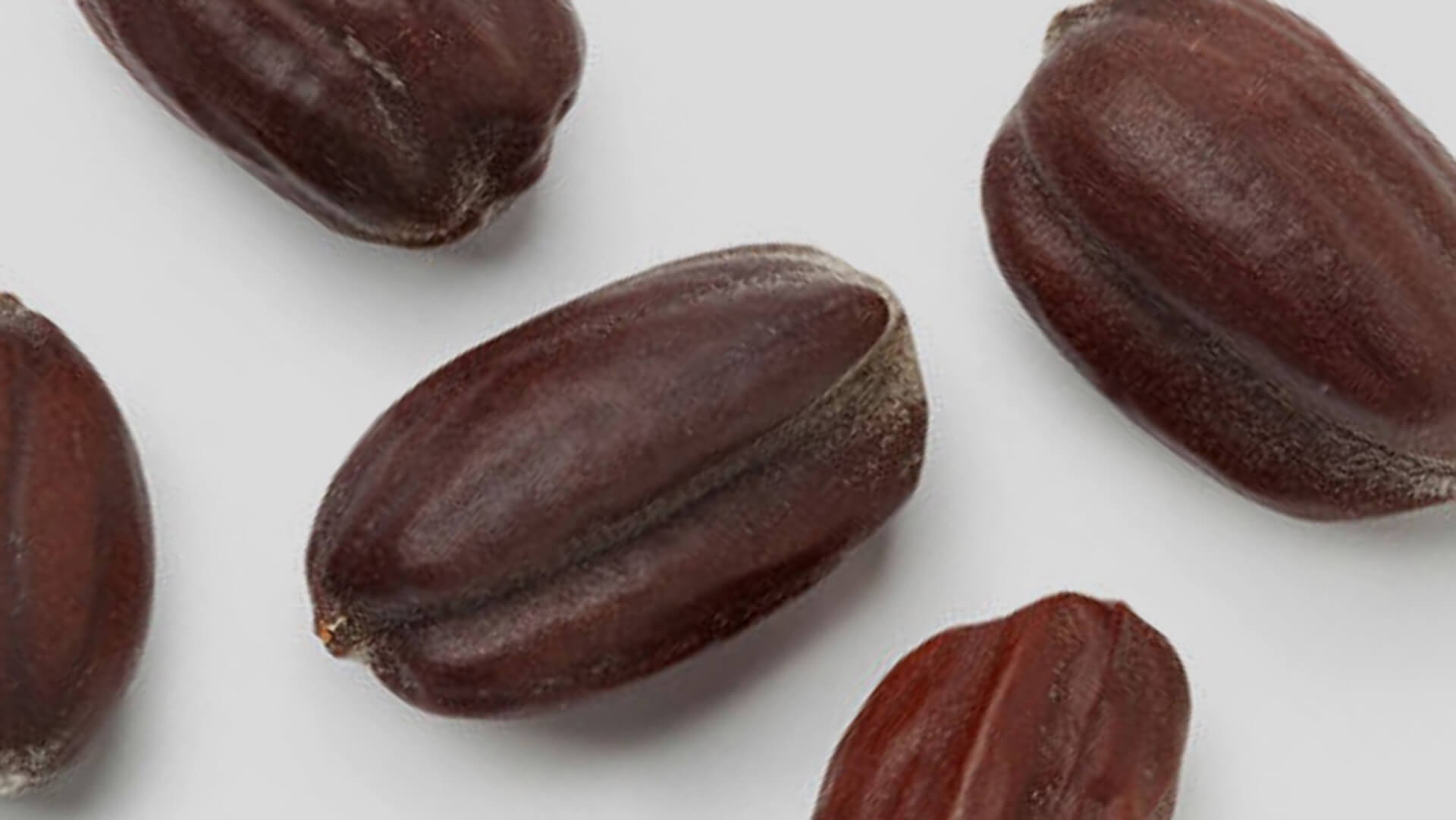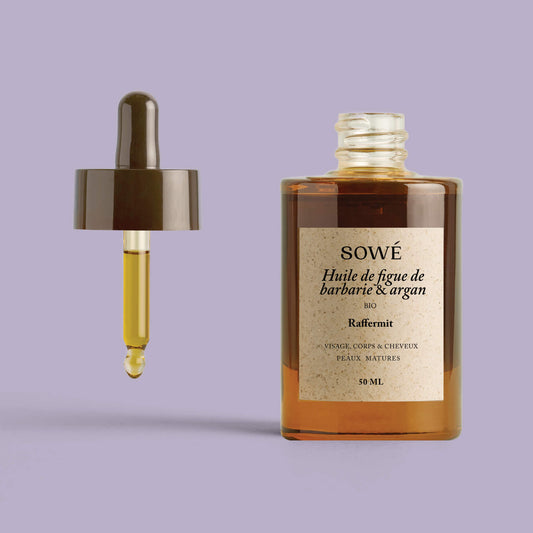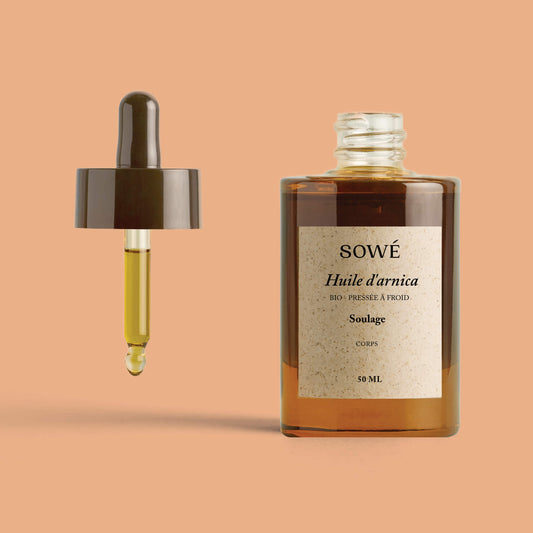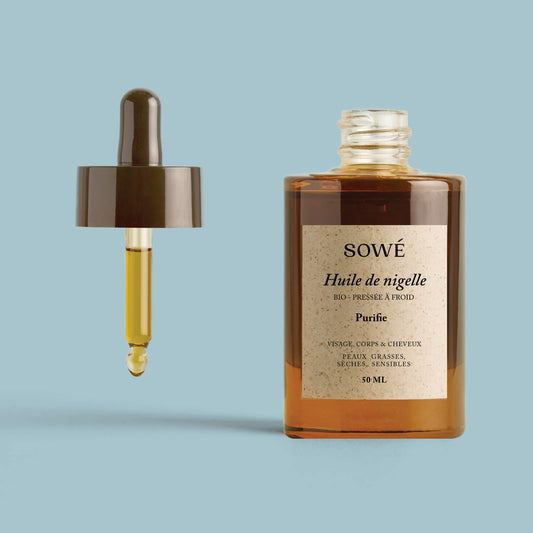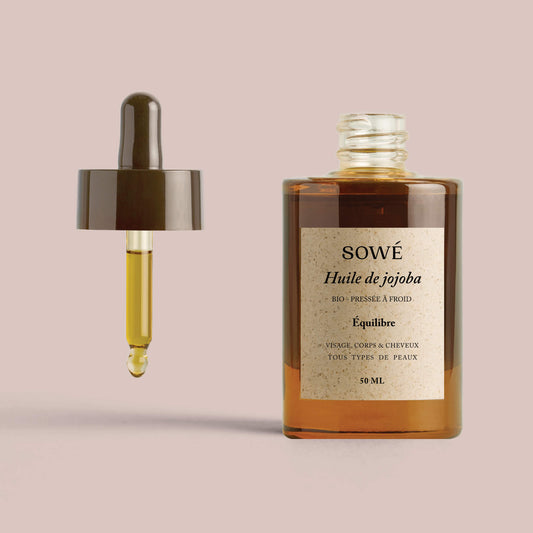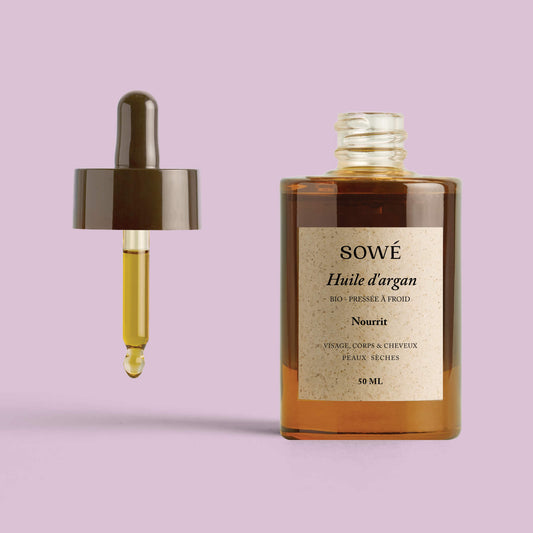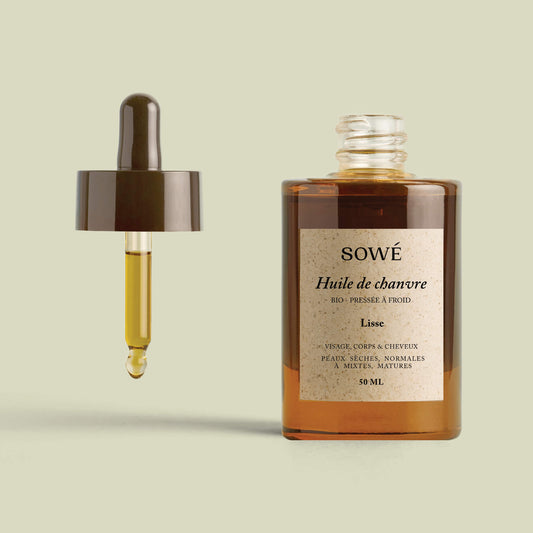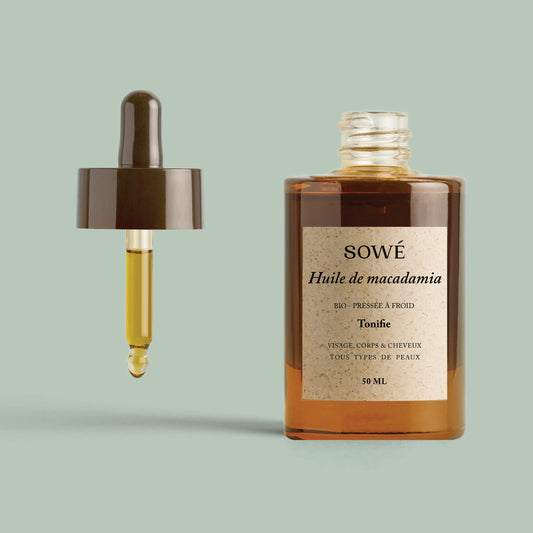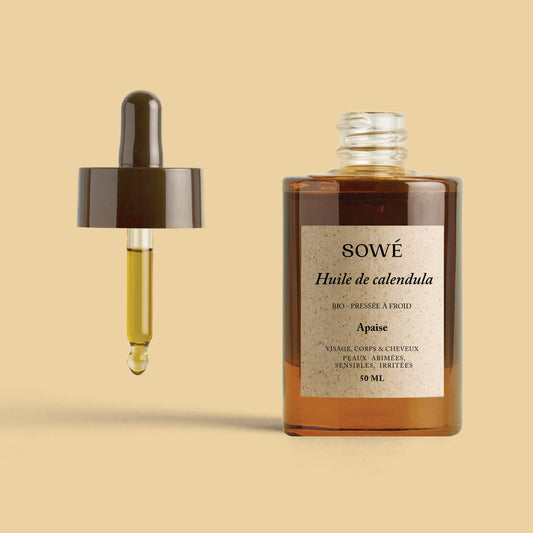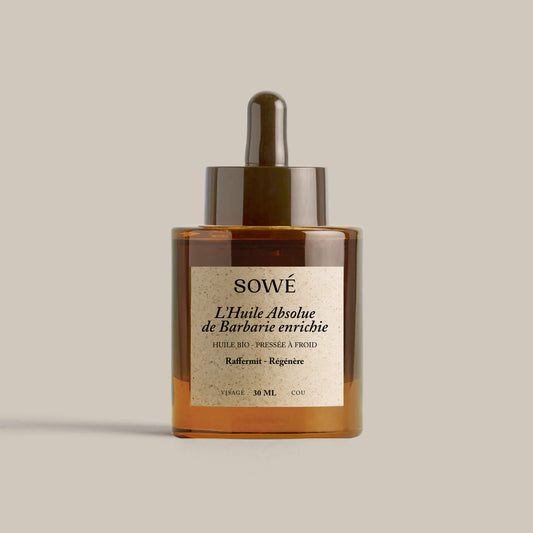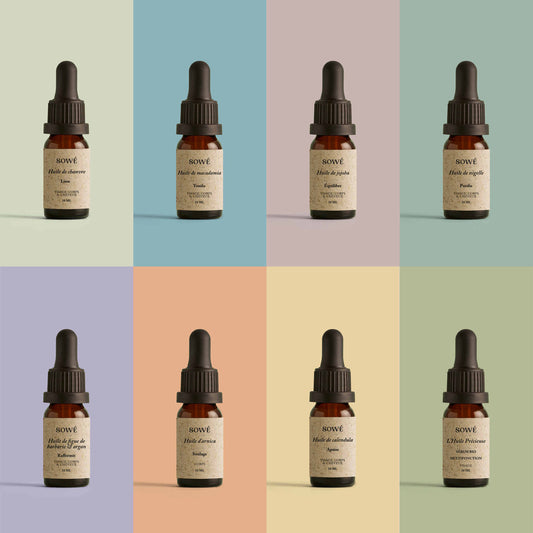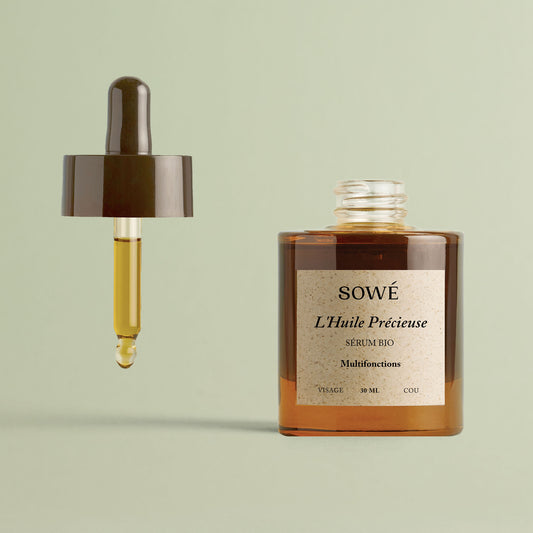Sensitive & reactive skin kit
Sensitive & reactive skin kit
Sensitive or atopic skin
All age skin
150 ml
Couldn't load pickup availability
Routine for Sensitive and Reactive Skin: Soothes and Naturally Protects
Redness? Irritations? Eczema or discomfort?
Does your skin easily react to external aggressors? This routine is specially designed to soothe and protect sensitive or reactive skin with gentle and restorative oils.
100% Natural, Dry Oils for Sensitive and Reactive Skin
This kit combines natural oils with soothing and anti-inflammatory properties to calm fragile skin, restore its balance, and strengthen its protective barrier. This kit contains 3 products.
Pure Cold-Pressed Jojoba Oil, Organic, 50 ml
Regulates sebum production without clogging pores.
Calendula Oil Infusion, Organic, 50 ml
Perfect for delicate skin, relieves redness and gently hydrates.
Pure Cold-Pressed Nigella Oil, Organic, 50 ml
Anti-inflammatory and healing, it soothes redness and imperfections.
Non-Comedogenic and Certified Organic Oils
Our oils are non-comedogenic and certified organic, ensuring their quality and compatibility with highly reactive skin types, without clogging pores. They respect the skin's natural pH while providing soothing, long-lasting hydration. Tailored to meet the specific needs of sensitive skin, they help restore comfort and suppleness without causing irritation.
Add this trio of oils to your daily routine for calm, protected, and healthy skin.
Psssst: Apply jojoba oil to your hair! It mimics the natural sebum produced by the scalp, helping to rebalance and hydrate your hair. Nigella oil soothes irritated or flaky scalps and strengthens hair by stimulating follicle regeneration.




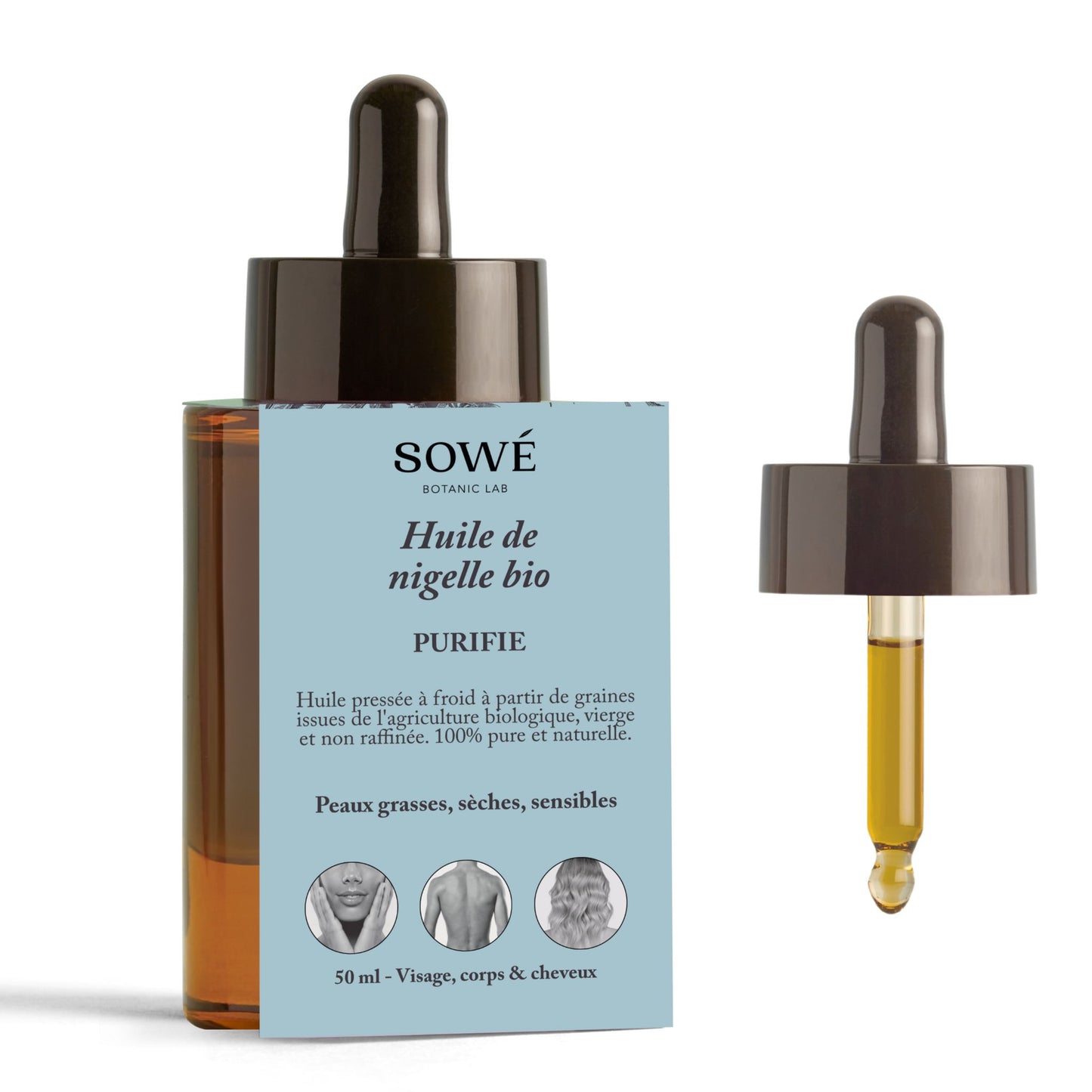
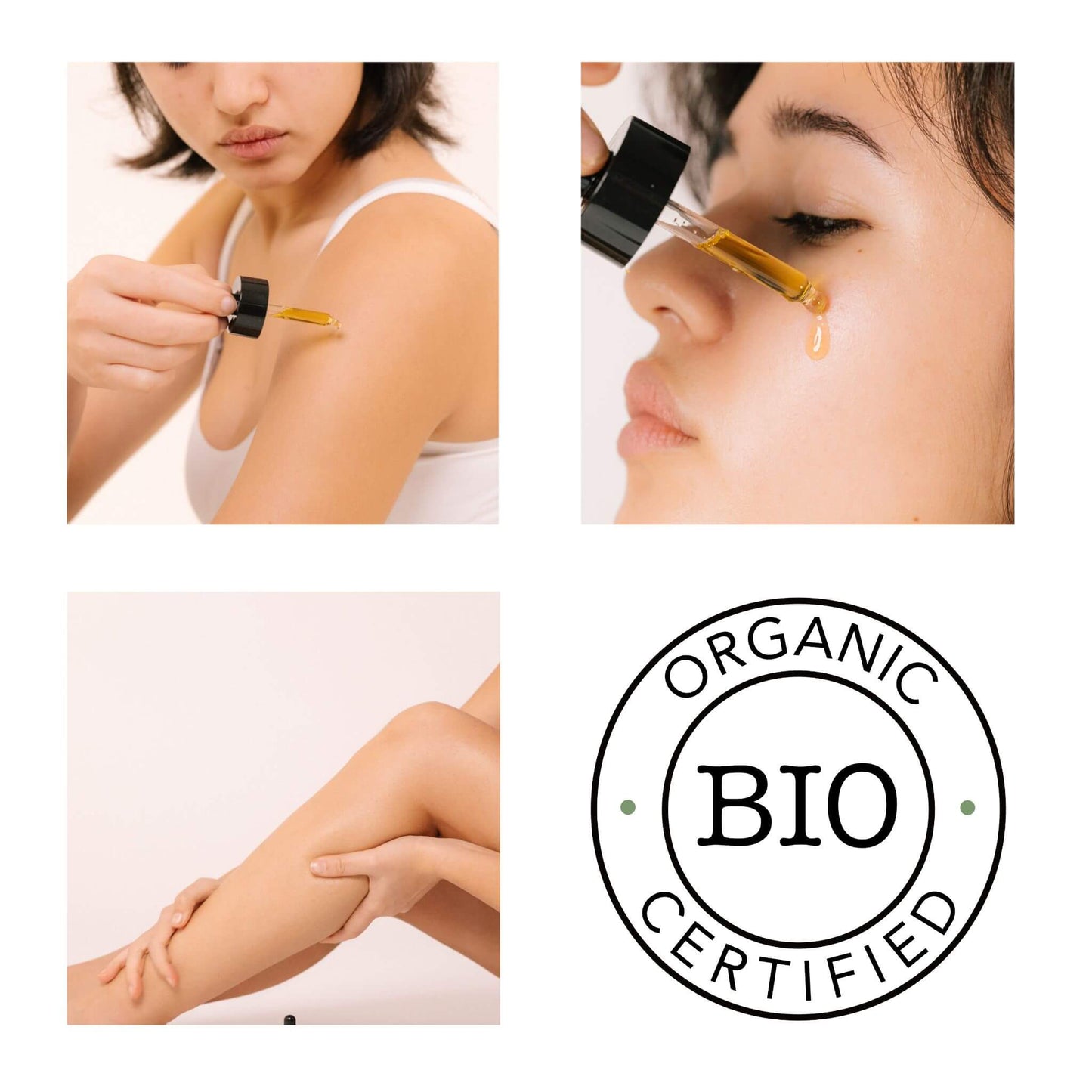
Collapsible content
Benefits
Benefits of Jojoba for the Skin
- Regulates sebum production.
- Deeply nourishes.
- Soothes and calms irritations.
- Maintains the balance of skin acidity.
- Softens the skin.
- Strengthens the skin's hydrolipidic film.
- Gently removes makeup.
Benefits of Jojoba for the Hair
- Hydrates dry and damaged hair by penetrating the hair fibre and leaving a protective film.
- Regulates sebum production in oily hair by mimicking the structure of natural sebum and balancing the scalp.
- Soothes scalp irritations and itching, possessing anti-inflammatory and antibacterial properties.
- Protects hair from external aggressors, such as heat, sun, pollution, or hair colouring, with antioxidant properties.
- Nourishes hair by providing vitamins, minerals, and essential fatty acids.
- Improves the softness, shine, and flexibility of hair, making it smoother and easier to style.
Indications
Protection of the skin against natural elements, regulation of sebum, prevention of ageing, nourishing and anti-dehydrating (stimulates collagen production), gently removes makeup.
Benefits of Black Seed (Nigella) for the Skin
- Soothing and purifying: prevents the formation of small acne spots and calms irritations.
- Nourishing and regenerating: combats ageing and skin dryness, especially for dry and sensitive skin.
- Healing and antiseptic: promotes tissue repair and protects the skin from infections.
Benefits of Black Seed (Nigella) for the Hair
- Revitalising for the hair: provides shine, softness, and strength.
- Stimulating for the scalp: activates blood circulation, prevents hair loss, and energises hair growth.
Indications
Acne spots, irritations, eczema, psoriasis, boils, and fungal infections (as a complement to other medical treatments), anti-wrinkle effect, signs of skin ageing.
Benefits of Calendula for the Skin
- Anti-inflammatory: containing naturally occurring faradiol, this macerated oil relieves skin inflammation.
- Healing: due to the presence of flavonoids and faradiol, this macerated oil stimulates the proliferation of epidermal cells to accelerate skin regeneration.
- Soothing: linked to its anti-inflammatory action, this macerated oil calms and softens abused, irritated, or sunburned skin.
- Nourishing: the various layers of the epidermis are nourished by this macerated oil due to its high oleic acid content, keeping the skin hydrated.
- Softening: the fatty acids contained in this macerated oil restore flexibility and elasticity to the skin.
Benefits of Calendula for the Hair
- The rich composition of fatty acids in calendula macerated oil gives it excellent nourishing and hydrating properties for the hair fibre.
- Its linoleic acid content significantly limits water loss in hair, thereby strengthening it and promoting its health.
- Ideal for sensitive scalps and psoriasis.
Indications
Skin allergies, hives, eczema, redness, irritations, baby skin, localized mild pain, bites, sunburn, sensitive scalp (irritation, psoriasis).
INCI & ingredients
- SIMMONDSIA CHINENSIS SEED OIL*
- NIGELLA SATIVA SEED OIL*
- CALENDULA OFFICINALIS FLOWER EXTRACT*
* Ingrédient issu de l'agriculture biologique et certifié Cosmos par Ecocert Greenlife
Directions for use
Soothing Routine for Sensitive and Reactive Skin: Morning and Evening
Morning: Organic Jojoba Oil
Start your day with organic jojoba oil, a light and regulating oil, perfect for sensitive skin. Its composition closely resembles human sebum, allowing it to rebalance the skin without overwhelming it while soothing redness and irritation. Thanks to its moisturising and protective properties, jojoba oil strengthens the skin barrier, leaving the skin soft and supple to face the day.
In Case of Irritation: Organic Calendula Oil
After cleansing your skin, apply organic calendula oil to soothe and calm irritations. This macerated oil is renowned for its powerful anti-inflammatory and healing properties, making it an essential ally for reactive skin. It helps reduce redness, alleviates itching, and promotes the repair of micro-damages caused by external aggressions. Ideal after the application of jojoba or as a complement, calendula oil provides additional protection and softness to your skin throughout the day.
Evening: Organic Black Seed Oil
In the evening, organic black seed oil repairs and regenerates the skin overnight. Known for its anti-inflammatory and antioxidant properties, it soothes skin inflammations and stimulates the healing of micro-damages caused by irritations. It deeply nourishes and helps reduce redness, offering calmer and revitalised skin upon waking.
Application on Hair
Organic Jojoba Oil:
Jojoba oil is an excellent option for hair, as it mimics the natural sebum produced by the scalp, helping to rebalance and hydrate dry or oily hair without weighing it down. It is ideal for nourishing dry ends, soothing an irritated scalp, and restoring shine to the hair. It can be used as a mask before shampooing or applied in small amounts to the ends after styling.
Organic Black Seed Oil:
Black seed oil is also beneficial for hair, especially for its anti-inflammatory and restorative action. It helps soothe irritated scalps or those prone to dandruff and strengthens hair by stimulating the regeneration of hair follicles. It is often used to nourish and fortify brittle hair while providing shine and softness.
Guarantees
Free Returns
If you happened to choose the wrong product when ordering, you have 30 days to return it to us free of charge.
Secure Payment
We accept MasterCard, Visa, and debit or credit cards. Our bank is our payment processor, ensuring that your transactions are secure and protected.
Natural Ingredients
Say goodbye to preservatives, solvents, and artificial fragrances.
Ingredients
-
Black seed oil - organic
Nigella, or black cumin - Black seed oil is a vegetable oil extracted from black cumin seeds. It has anti-inflammatory, anti-infectious and cosmetic properties. It is used for internal and external use.
- Perfuming
- Emollient
- Skin conditioning
-
Jojoba seed oil - organic
Jojoba, desert gold - Regulating and softening, jojoba oil is an ingredient appreciated for its penetrating touch which does not leave a greasy film. Very close to sebum, it protects the skin from dehydration.
- Emollient
- Skin conditioning
- Hair conditioning
-
Calendula macerate - organic
Calendula, a carefree flower - Calendula is a friend of baby and sensitive skin. Rich in fatty acids, faradiol esters known to be anti-inflammatory and in antioxidant carotenoids and flavonoids, it is the king of gardens
- Skin conditioning
FAQ
Collapsible content
How do I apply my oil to the skin?
Place 3 to 5 drops in the palm of your hand, then gently massage into the face, body and/or hair, avoiding contact with the eyes. The precious oil can be used every day, morning or evening, as you wish.
Morning routine
Apply every morning after cleansing the face and body, preferably before applying cream, to allow the skin to absorb the treatment.
Night routine
Apply every evening after cleansing the face and body, just before going to bed, so that the active ingredients penetrate throughout the night as the skin regenerates.
Further information: How do I apply oil correctly to the skin?
How do I determine my skin type?
To determine your skin type, follow these steps.
Prepare your skin
Start by removing your make-up completely and washing your face with a gentle cleanser. By the way, did you know that jojoba oil is a great 100% natural make-up remover that takes care of your skin at the same time? Next, wait an hour without applying any products to your skin.
Examine your skin
After an hour, dab your T-zone (forehead and nose) with a tissue. If sebum has been transferred to the tissue, your skin is either oily or combination. Also, find out how you feel. If your skin feels tight after washing, it's probably dry. If it feels refreshed, it's probably oily.
Don't hesitate to use our online diagnosis to find out which product is best for you.
Skin types
Here are the four different skin types:
Normal skin
It produces just the right amount of sebum to stay hydrated, protected and comfortable without shine.
Dry skin
It is desperately short of sebum, tight, uncomfortable and flaky.
Oily skin
It tends to be shiny all over the face. It is generally thicker, with dilated pores and irregular skin texture.
Mixed skin
It is often rather oily on the T-zone (where the sebaceous glands are most numerous) while the cheeks are dry and tight.
It is important to note that the condition of the skin can vary according to external factors such as climate, diet, stress, etc. It is therefore advisable to re-evaluate your skin type regularly to adapt your skincare routine. It is therefore advisable to regularly re-evaluate your skin type to adapt your skincare routine.
Can oil be used on oily skin?
Yes, you can use an oil on oily skin, as long as you choose the right oil. Contrary to popular belief, some oils are capable of regulating sebum production and restoring the complex balance of your epidermis.
Here are some plant oils recommended for oily skin:
- Jojoba oil: Similar to the sebum produced by the body, this oil is highly prized by our skin and helps to rebalance sebum production.
- Black cumin oil: Antibacterial, black cumin oil effectively eliminates skin imperfections.
- Hemp oil: Deeply moisturises the skin without leaving a greasy finish.
It's important to note that even if oily skin doesn't need to be nourished, hydration is essential. Poor hydration could encourage the epidermis to produce even more sebum in order to hydrate itself, aggravating the vicious circle of oily skin. So it's essential to work directly on the skin with the right skincare products.
To learn more about oils and oily skin, check out our blog here.
What are the best plant oils for moisturising, nourishing, protecting, regenerating, soothing or purifying the skin?
Here are a few plant oils that are often recommended for their beneficial properties for the skin.
To moisturise and nourish the skin
- Hemp oil: Soothing, softening and nourishing, this oil is ideal for delicate, dry skin.
- Argan oil: Obtained from argan seeds, this oil is nourishing, protective and restructuring.
- Macadamia oil: Known for its moisturising and anti-ageing properties.
To protect and regenerate the skin
- Prickly pear oil: Known for its regenerating and anti-wrinkle properties.
- Argan oil: Ultra-nourishing, this oil helps to maintain skin hydration and combat the effects of time.
To soothe the skin
- Jojoba oil: Known for its protective properties, it also restores the skin's elasticity.
- Calendula oil: Renowned for its soothing and healing properties.
To purify the skin
- Black cumin oil: Non-comedogenic, it is recommended for acne-prone skin.
It is important to note that the effectiveness of these oils may vary according to skin type.
What are the differences between vegetable oils and essential oils?
Vegetable oils and essential oils both come from nature, but they are very different in terms of composition, origin, method of production and use.
Vegetable oils are fats that nourish and protect the skin, while essential oils are concentrates of volatile substances with therapeutic properties.
Vegetable oil
They are extracted from oleaginous plants such as baobab and sunflower, or from dried fruit, seeds or flowers. They contain vitamins and fatty acids, and have nutritive, protective, softening and regenerative properties that are beneficial for the skin. They can be used or eaten pure. They can also be used as a base for diluting essential oils.
Essential oil
They are obtained from the flowers, stems, roots or leaves of plants, often by distillation. Their therapeutic properties (toning, digestive, soothing, etc.) vary according to their origin. They generally need to be diluted, for example in a vegetable oil, and can also be inhaled. Care must be taken, however, as there are contraindications to the use of essential oils, as some of their chemical components can be dangerous.
To find out more: The difference between vegetable oils and essential oils
How should plant oils be used on the skin?
Here are a few tips on how to use plant oils on the skin.
Moisturising
You can apply your oil before or after your cream or serum.
As our oils are non-comedogenic, they allow the active ingredients in your cream to pass through. Applying them on top of your cream or serum will provide you with lipids. They will form a protective film on the skin's surface that will prevent the evaporation of water and keep it well hydrated.
Massage
For the body, massage in zone by zone (bust, arms, stomach, thighs) using circular movements. For the face, apply the oil or treatment in smoothing movements, starting from the centre and working outwards.
Pure application
You can also use a pure vegetable oil. All you need is a few drops, warmed in the palm of your hand and applied with a gentle massage, to reap all the benefits.
Other uses
Vegetable oils can also be used to remove make-up, as day and night creams, as eye care, as oil baths for the hair, or to revive dull complexions.
Which plant oils for which skin type?
Choose a plant oil according to your skin type for double effectiveness. There are a huge number of different oils, all of which have their own properties and are therefore adapted to specific skin types and problems.
Oily skin
The best oils for oily skin are jojoba oil, black cumin oil, hemp oil and L'Huile Précieuse.
Mixed skin
The ideal plant oils for combination skin should be gentle and non-greasy, regulating and balancing. The best plant oils for combination skin are jojoba oil, black cumin oil, hemp oil, argan oil, macadamia oil and L'Huile Précieuse.
Dry skin
Plant oils for dry skin should have nourishing, protective, softening, anti-inflammatory and emollient properties. The vegetable oils most commonly used are argan oil, jojoba oil, macadamia oil, prickly pear oil and L'Huile Précieuse.
What properties do plant oils have for the skin?
Skin oils are natural products that can have many benefits, depending on their composition and how they are used.
Vegetable oils are extracted from plants, fruit, seeds or nuts. They are rich in fatty acids, vitamins and antioxidants. They can nourish, moisturise, protect, regulate, heal and soften the skin. They are suitable for all skin types, but you need to choose the one that best suits your needs and sensitivities. Jojoba oil is ideal for all skin types, including oily skin, because its light, penetrating texture protects the dermis. Argan oil is recommended for dry and mature skin, because it has nourishing, regenerating and anti-ageing properties, while hempseed oil is better suited to oily skin.
How do I store my oil?
Store at room temperature, out of sight and reach of children, in a dry place protected from UV rays and light.
Avoid severe thermal shock.
Customer reviews
J aime beaucoup les produits. Une amie m avait conseillé cette marque et j en suis ravie.
Merci
Press says
-

There are all kinds of serums on the market, from anti-aging formulas to those designed to nourish the skin [...] but none had surprised us even before the results appeared
-

A powerful anti-aging ally. A closer look at this oily elixir and its benefits for our facial skin
-

Magazine Susanne Green
Double anti-aging effect
-

Could it be the most precious oil? Yes, prickly pear seed oil is one of the rarest oils in the world, but also one of the most effective at combating the signs of ageing.
-

The cactus has become a valuable beauty ally
-

Versa
There are all kinds of serums on the market, from anti-aging formulas to those designed to nourish the skin [...] but none had surprised us even before the results appeared
All SOWÉ vegetal oils
-
Prickly pear & argan oil - Organic & cold-pressed
4.82 / 5.0
(148) 148 total reviews
Regular price €24,90Regular priceUnit price / per -
Arnica oil - Organic & cold-pressed
5.0 / 5.0
(3) 3 total reviews
Regular price €19,90Regular priceUnit price / per -
Black seed oil - Organic & cold-pressed
5.0 / 5.0
(6) 6 total reviews
Regular price €17,90Regular priceUnit price / per -
Jojoba oil - Organic & cold-pressed
4.89 / 5.0
(9) 9 total reviews
Regular price €19,90Regular priceUnit price / per -
Argan oil - Organic & cold-pressed
5.0 / 5.0
(5) 5 total reviews
Regular price €22,90Regular priceUnit price / per -
Hemp oil - Organic & cold-pressed
4.86 / 5.0
(42) 42 total reviews
Regular price €17,90Regular priceUnit price / per -
Macadamia oil - Organic & cold-pressed
5.0 / 5.0
(2) 2 total reviews
Regular price €18,90Regular priceUnit price / per -
Calendula oil - Organic & cold-pressed
4.89 / 5.0
(9) 9 total reviews
Regular price €20,90Regular priceUnit price / per -
Organic prickly pear oil - Face care
5.0 / 5.0
(7) 7 total reviews
Regular price €64,90Regular priceUnit price / per€0,00Sale price €64,90 -
Discovery gift kit - Selection of fine plant oils
5.0 / 5.0
(1) 1 total reviews
Regular price €49,90Regular priceUnit price / per -
L'Huile Capillaire - Nourishing & stimulating hair care
5.0 / 5.0
(3) 3 total reviews
Regular price €34,90Regular priceUnit price / per -
L'Huile Précieuse - Organic anti-ageing & anti-oxidant serum
4.95 / 5.0
(55) 55 total reviews
Regular price €38,50Regular priceUnit price / per -

 Special offer
Special offerNatural skin care kit for the whole family
Regular price €64,90Regular priceUnit price / per€83,60Sale price €64,90Special offer -

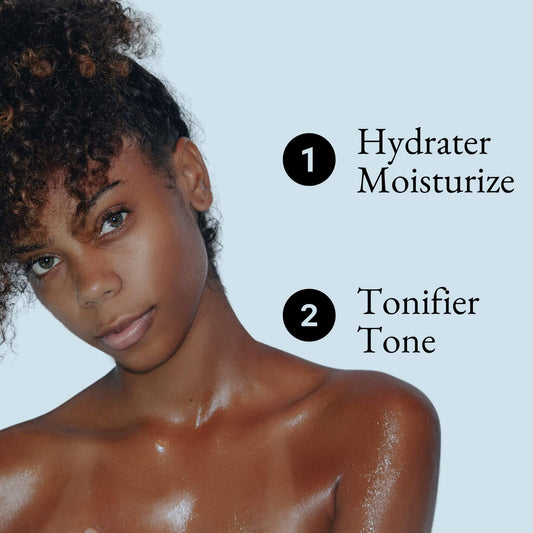 Special offer
Special offerKit dry & dehydrated skin
5.0 / 5.0
(2) 2 total reviews
Regular price €36,90Regular priceUnit price / per€43,80Sale price €36,90Special offer -

 Special offer
Special offerSensitive & reactive skin kit
5.0 / 5.0
(1) 1 total reviews
Regular price €44,90Regular priceUnit price / per€58,70Sale price €44,90Special offer -

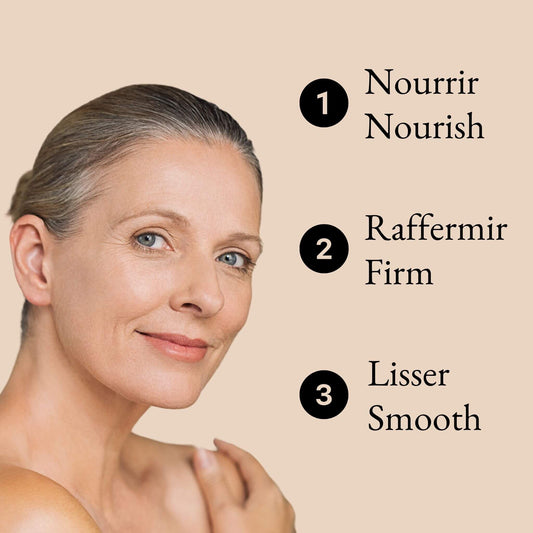 Special offer
Special offerKit mature skin & anti-aging
Regular price €49,90Regular priceUnit price / per€61,70Sale price €49,90Special offer -

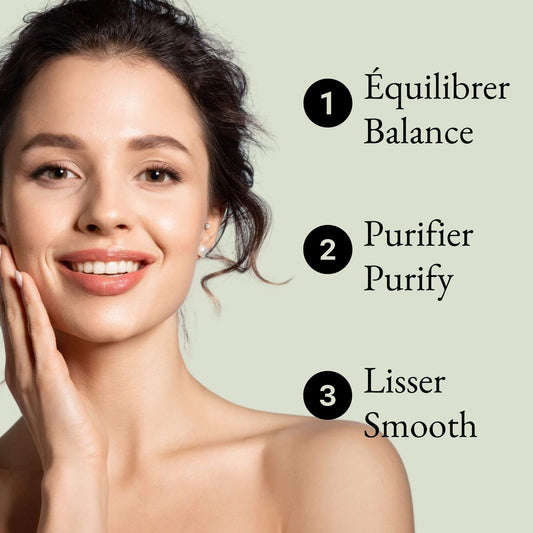 Special offer
Special offerKit oily or acne-prone skin
5.0 / 5.0
(1) 1 total reviews
Regular price €44,90Regular priceUnit price / per€55,70Sale price €44,90Special offer -
Eye Contour - Absolute Oil of Prickly Pear Seed
Regular price From €24,90Regular priceUnit price / per€0,00Sale price From €24,90
















